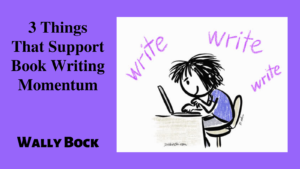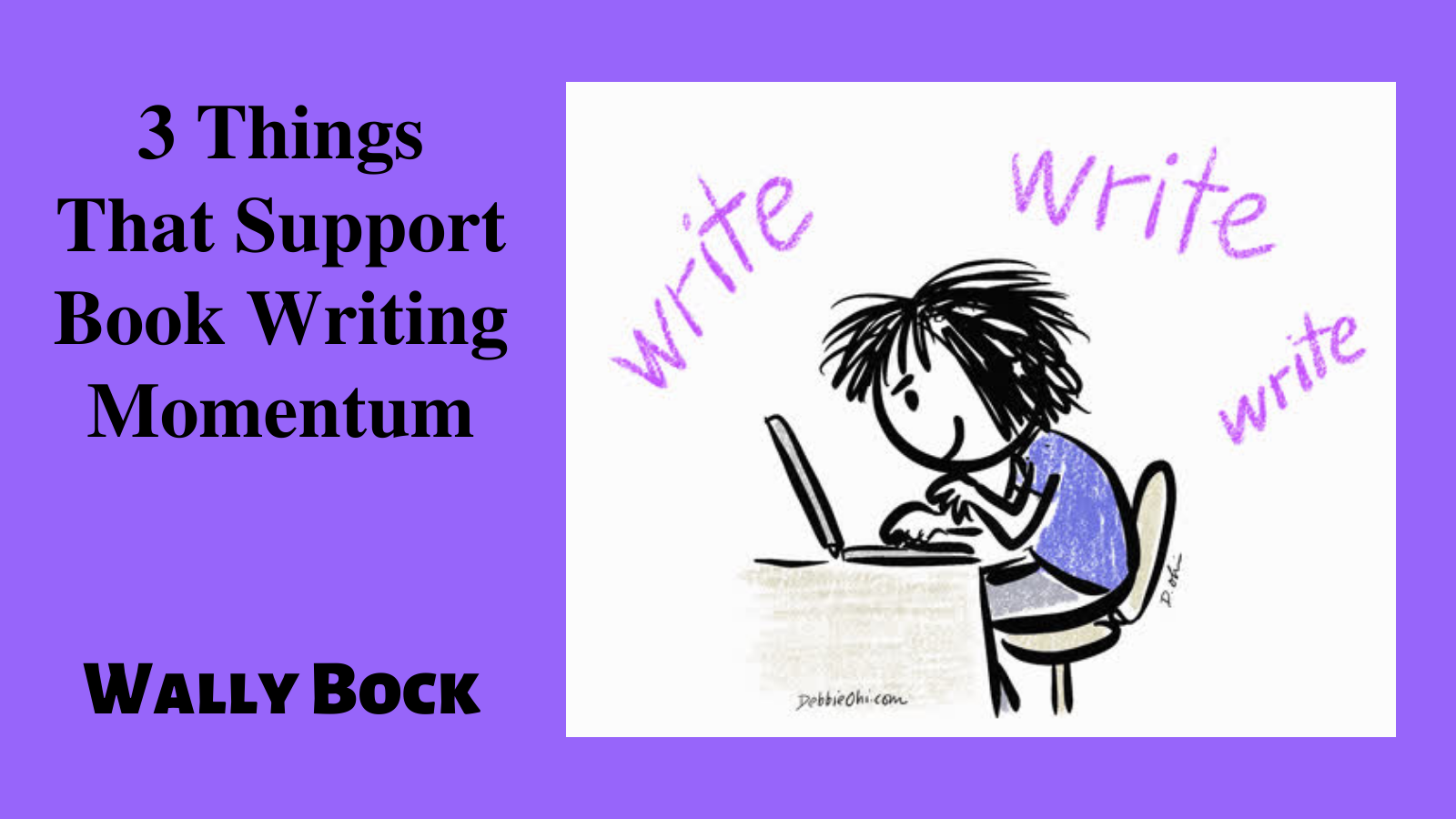 If writing isn’t your day job, you have a special challenge with maintaining momentum. You may schedule your writing sessions several days apart. That, alone, makes it hard to maintain momentum. But you’ve also got a whole life to live besides your writing. You’ve got family obligations and a full social calendar and then there’s work.
If writing isn’t your day job, you have a special challenge with maintaining momentum. You may schedule your writing sessions several days apart. That, alone, makes it hard to maintain momentum. But you’ve also got a whole life to live besides your writing. You’ve got family obligations and a full social calendar and then there’s work.
If that sounds like you, help is on the way. Here are three things you can do that will help keep the momentum going.
Build great writing habits
Good writing habits and strong rituals tell your brain, “OK, now it’s time to write!” Start by having a regular place to write.
Your “writing cave” should have a way for you to shut out distractions. A door you can close is critical. Try to write on the same day(s), at the same time, and with the same equipment every time.
Start every session by closing off distractions. Shut off your phone. Put it in another room if possible. Tell people in the area that they interrupt you at their own risk. If there’s no need to call 911, they can wait until you’re done.
Develop a prestart ritual that you follow with every session. It may include meditation or exercise. You might have a special “music for writing” playlist. Starting it can be part of your ritual.
You should have a session closing playlist, too. Decide what you’re going to write in your next session. Put your equipment away. You may want to have a closing statement such as, “Now I’m done with writing for today.”
Always know what’s next
In 1935, Ernest Hemingway left Key West in his boat and headed for Cuba. He took a young man with him on that trip who had hitchhiked from Minnesota to ask for Hemingway’s advice on writing. Here’s a quote from the article Hemingway wrote about the trip. It was published in Esquire in October 1935.
“The best way is always to stop when you are going good and when you know what will happen next. If you do that every day when you are writing a novel, you will never be stuck. That is the most valuable thing I can tell you so try to remember it.”
That advice works for nonfiction writers, too. When you know what you’re going to write next, you’ll start writing at the beginning of the next session. That’s almost always enough to get you going. Otherwise, you can spend precious time figuring out what to write.
Be honest with yourself
It’s easy to think you’re making more progress than you are. Nobel Laureate Richard Feynman put it this way. “The first principle is that you must not fool yourself – and you are the easiest person to fool.”
You must work out a way to keep yourself honest about how you’re doing. The best way is to keep records of how you do every session
Behavioral psychologist Robert Boice worked with three groups of writers who had similar experience and challenges. He tracked them for a year.
One group worked the way they always had. A second group committed to daily writing sessions and kept a log of their writing time. The third group also committed to daily writing and to keeping a log, and Boice contacted them regularly to see how they were doing.
At the end of the year, Boice measured publishable output. The group that kept records outperformed the group with no change by more than four times. And the group that Boice followed up on produced nine times the publishable records of the first group.
Keep records of what you change and your output. That way, you’ll be able to tell what works and what doesn’t. That way, you won’t fool yourself. You can make the effect even stronger if you engage an accountability partner.
Takeaways
If writing isn’t your day job, it’s easy to lose momentum.
Great writing habits and rituals tell your brain it’s time to write.
Quit while you’re still going strong.
Always know what’s next.
Keep records of your writing so you don’t fool yourself about progress.
An accountability partner can help you maintain momentum.
